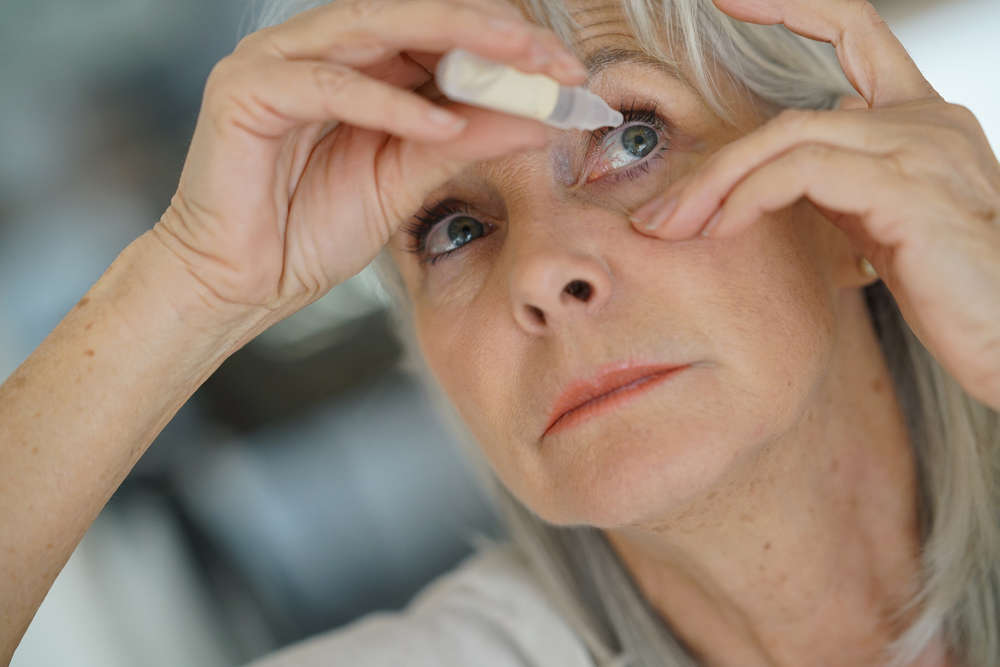Posted by: Focal Point Vision in Blog

Are you considering cataract surgery to restore your vision and regain your independence? While it is a quick and easy procedure, you may wonder what recovery is like after, and whether there are any postoperative restrictions you must follow.
Keep reading to learn more about whether there are any restrictions after cataract surgery and what to expect during the healing process.
What are Cataracts?

Cataracts are clumps of protein that cause clouding and discoloration that affects the natural lens of your eye. The natural lens is a clear disc that helps focus light on the retina.
Over time, the proteins that make up the lens can form cloudy patches that prevent light from passing through. This clouds your vision, making it more difficult to see and causing symptoms like light sensitivity, poor night vision, faded or yellowed vision, and double vision.
There are no treatments that can slow or reverse cataracts. You can manage the early symptoms with corrective lenses, brighter lighting, and other lifestyle adjustments.
However, the only way to reverse the vision changes from cataracts is with cataract surgery.
What is Cataract Surgery?
Cataract surgery is a safe, effective outpatient procedure to remove the clouded natural lens of your eye and replace it with a clear, corrective lens called an intraocular lens (IOL). The procedure takes less than 30 minutes, and you can go home the same day.
During the procedure, your eye doctor will numb your eye so you won’t feel any discomfort. You can also choose light sedation to help you stay relaxed.
Once your eye is prepared, they will make a small incision in your cornea with either surgical tools or a laser, break up the cataract-affect lens, and remove the pieces. They then place the IOL in the capsule where the natural lens sits and adjust it into position.
Once the IOL is placed, the procedure is complete. The incision can heal without stitches.
Are There Restrictions During Cataract Surgery Recovery?
After cataract surgery, your eye doctor at Focal Point Vision will give you detailed aftercare instructions. Proper aftercare reduces the risk of infection or complications and ensures your healing goes as quickly and smoothly as possible.
You’ll need to follow certain restrictions, including:
Not Driving
Immediately after cataract surgery, you will need to have someone who can drive you home. You’ll also need to get a ride to your follow-up appointment the next day, where you’ll likely be cleared to drive on your own if your eye is healing as it should.
Protecting Your Eye
You may notice blurry vision and mild discomfort immediately after the procedure. Soreness and grittiness are common side effects, but they will lessen as your eye continues to heal.
Your cataract surgeon will have you wear an eye shield when you go home after the procedure. This protects your eyes and prevents you from touching or rubbing them.
Touching your eyes can increase the risk of infection and complicate healing. You should plan to wear the eye shield overnight for several nights so you don’t inadvertently rub your eyes in your sleep.
Taking Medications as Directed

Your eye doctor will prescribe eye drops to reduce the risk of infection and inflammation. You should use them precisely as directed.
You should not need prescription pain medication to ease discomfort after cataract surgery. Over-the-counter pain medicines like ibuprofen or acetaminophen are usually sufficient, but be sure to consult with your eye doctor before taking any new medications.
Avoiding Water in Your Eye
You can shower or bathe after cataract surgery, but keeping soap and water away from your eye is essential. Soap can be irritating, and tap water can contain bacteria that can cause infection.
You should also avoid swimming pools, hot tubs, and natural bodies of water such as lakes and oceans until your eye doctor clears you.
Not Using Cosmetics Around Your Eye
You should not use makeup around your eye until your eye doctor tells you it’s safe. Makeup can be irritating and may contain traces of bacteria that can cause infection.
You should also avoid your eye when applying skincare products to your face and avoid products with fragrances that cause irritation.
Limiting Strenuous Activities
You should avoid strenuous activity or lifting heavy objects until your eye doctor says it’s safe to do so. This includes working out or physical labor.
You can resume exercise and your regular work duties once your eye doctor clears you.
Being Diligent About Your Symptoms
Mild discomfort after cataract surgery is normal. However, call your eye doctor immediately if you notice signs of infection or complications such as:
- Increased pain or redness
- New or worsening swelling
- Discharge from the eye
- Changes to your vision, such as increasing floaters, flashes of light, or double vision
- Headache
- Fever
When Will My Vision Improve after Cataract Surgery?

Most people notice vision improvements right after cataract surgery. Cataracts only affect the lens of the eye, which is removed during the procedure.
The new IOL is clear, so the effects of cataracts are reversed right away. However, vision improvements from the corrective effects of the IOL may develop gradually, and the healing process can largely depend on which IOL you choose.
You may notice clearer vision within the first few days, and it will likely become sharper as your eyes fully heal. Then, you can get back to all your favorite activities with clear, cataract-free vision!
Are you ready to learn more about cataract surgery? Schedule an appointment at Focal Point Vision in San Antonio, TX, today!
